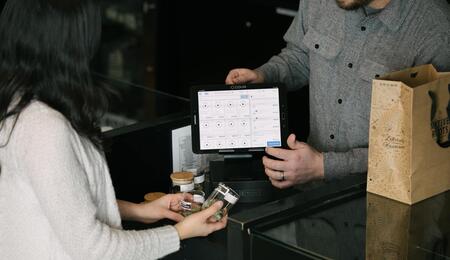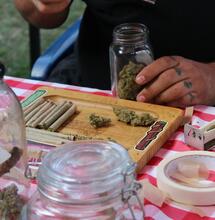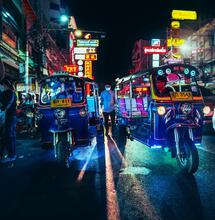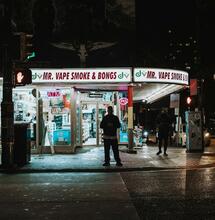Arizona Awards Golden Tickets to Legal Market

Officials in the Grand Canyon state selected the applicants for cannabis social equity licenses last week, granting 26 lucky winners the opportunity to launch their own recreational dispensary business. The awardees were chosen out of a lottery pool of over 1,000 applicants.
Arizona voters legalized marijuana back in 2020. Proposition 207 includes provisions to "promote the ownership and operation of marijuana establishments and marijuana testing facilities by individuals from communities disproportionately impacted by the enforcement of previous marijuana laws."
The Arizona Department of Health Services offices selected the beneficiaries under this provision on Friday, April 8. Prior to the selection, the state's licenses program for those negatively affected by the War on Drugs was the subject of legal challenges.
Officials used Smartplay International state lottery software to pick the winners randomly. Arizona CPA firm Henry & Horne LLP served as the operator and auditors to ensure the security of the selection lottery. The lucky winners now have 18 months to launch their own recreational dispensary business.
Over 1,300 applicants anxiously waited for the lottery outcome last week to see if they were the lucky ones chosen in the draw. For most applicants, this was a dream not to be fulfilled, however.
One of the applicants, Arianna Munoz, who wasn't selected, told local media: "It would create generational wealth for me and my family. It would give me more opportunities to create other business ventures."
She added: "I've always wanted to be a brand owner and dispensary owner and it was the perfect time."
Earlier this year, a judge dismissed a lawsuit that challenged how the state was handling the selection process.
Opponents of the lottery system expressed concerns that social equity licenses may end up being rewarded to unqualified applicants if the health department fails background checks on the applicants.
Other aspects were also disputed, including a regulation that says qualified individuals must own 51% of a social equity business, which opens the floor for corporate business and multi-state operators to partner with applicants and carry out operations under the equity program.
Candidates for the social equity program had to pay a $4,000 application fee just to go through the process of trying to qualify. Recipients reserve the right to sell their license to another business entity if they want to, which is also conspicuous.
Overall, critics say that the rules of the social equity program fail to live up to its objectives.
The number of marijuana shops that can open in Arizona is limited by law. Last week's lottery selection is likely the first and last time social equity licenses have been awarded, at least for the foreseeable future. The lottery winners list and the complete list of applicants are available online here.
U.S. states have taken different approaches to establishing social equity programs. For now, New York and Connecticut, at least on paper, appear to have the best programs to appeal to communities affected by the War on Drugs.













